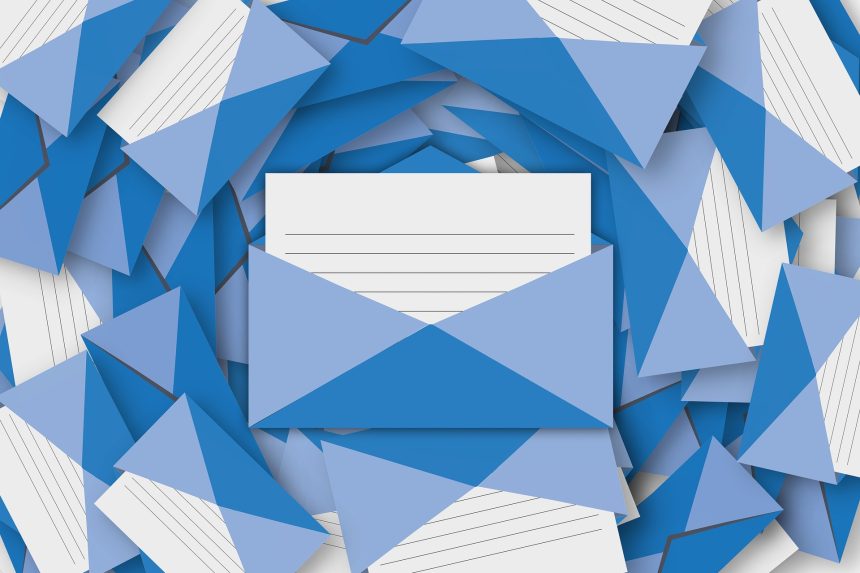Does anyone really like email anymore?
When I was 12 years, I set up my first ever email account. It was a Yahoo account. It was something which felt very cool at the time. Having my personal email account.
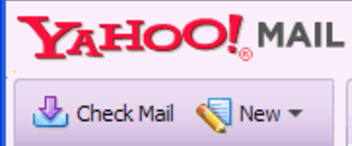
Fast forward to 2017 where we now have multiple email options which we sign up for including Outlook and Gmail. In the workplace, email appears to be the main means of communication. Whether it’s sending responses to clients about project updates or sending attachments with documents, almost all workplaces have email accounts for business communication. Even with personal communication, email appears to dominate.
But is email about to go the way of the dinosaur thanks to the emergence of mobile communication apps? Or is email still here to stay as the number one mode of communication at Ghanaian workplaces?
Here Come The Messaging Apps
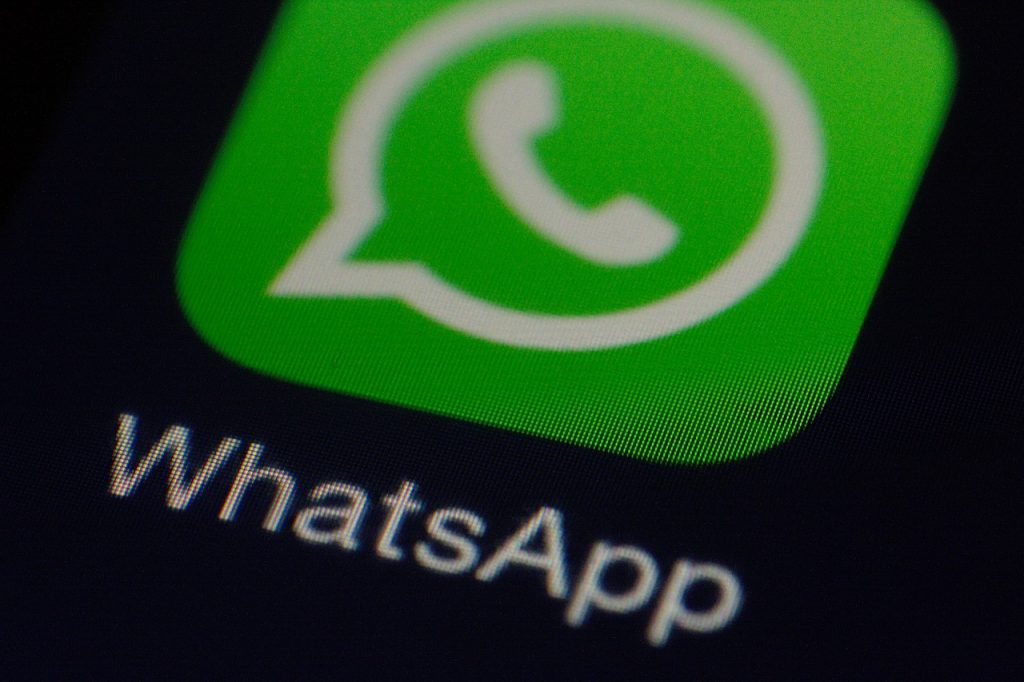
WhatsApp has seemingly become the default chat app that everyone in Ghana uses. EVERYBODY uses it. My mom uses it, my dad uses it. Even my aunt all the way in the Upper West region uses it.
WhatsApp has grown from an app which was mainly used to communicate amongst friends and family to being a communication tool for businesses to interact with their customers. Nowadays, its very common to see businesses advertise their contact information and include a number for their WhatsApp line. At radio stations, listeners are encouraged to send their messages through through WhatsApp. Messages are easily seen on computers and laptops ( thanks to the desktop application WhatsApp provides) and are read on air.
WhatsApp appears to be a game changer for businesses. But can it take over the Ghanaian workplace in terms of worker communication? I know I use WhatsApp for project work with teams. Its easy to communicate meeting times and send out messages about updates for different projects. But I find it limiting sometimes.
I’m not certain if teams in big businesses and corporations would use WhatsApp to communicate with each other. I’m more certain that they rely on email communication especially if messages can be sent through their own servers. But I could be wrong.
Slack
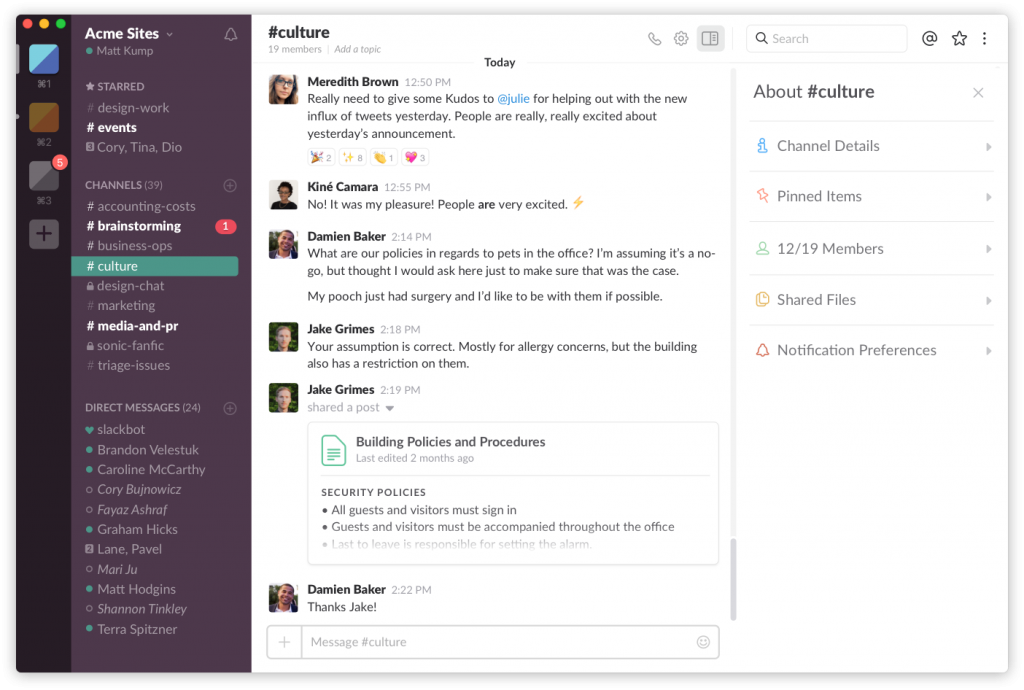
Have you heard of Slack? Maybe. Maybe not. In Ghana, I don’t hear a lot of talk about Slack, a messaging app for groups and teams, but in the US, most people swear by this application. Some have even labelled it the “Email Killer“.
It has a small learning curve but once you get the hang of it, it could actually be a replacement for all your email communication in your work organisation.
But I don’t see a lot of use of this application in workplaces. Some managers have told me that they want their workers to use Slack but there have been resistances.
I’m actually a fan of Slack. I was slow to adopt it at first but once I got in with the right groups, I’m loving almost everything about it. It even has a mobile app so I can easily communicate when I’m on the go. Sharing of documents and files is also easy as well.
But how willing are Ghanaian workers and offices to switch to Slack? I would say not likely. I conducted a quick survey of people in my network and most of them say email still reigns supreme in their workplace.
But there is a small number of people who use Slack in their offices. So maybe, it could eventually grow.
Facebook Workplace
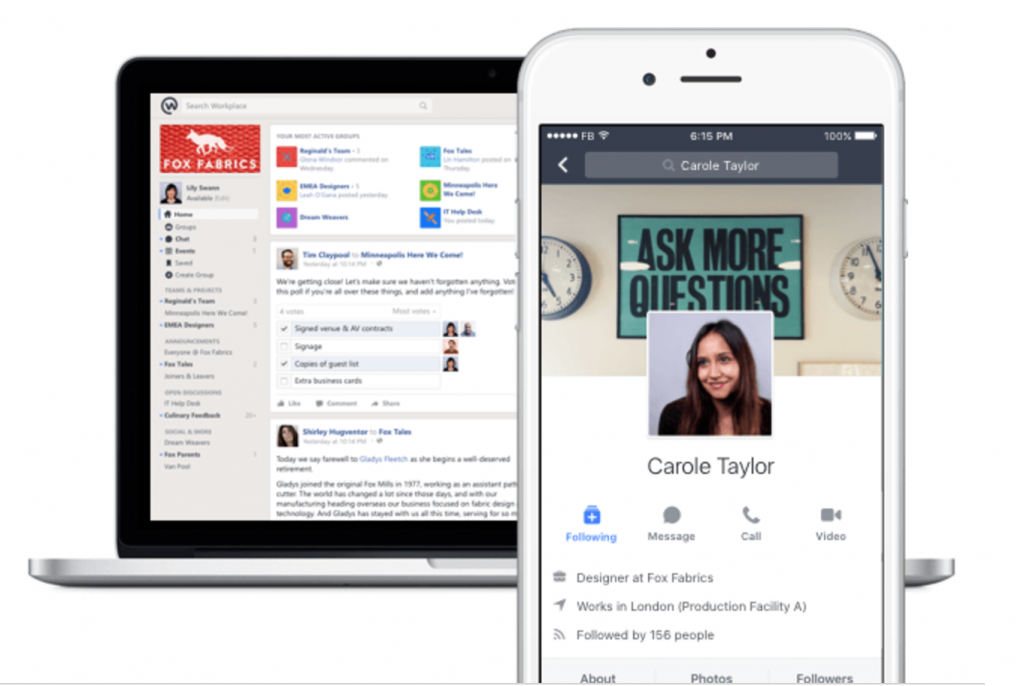
Did you know Facebook has an app for workplace use? Yep! It’s called “Workplace“. Just imagine using Facebook but for work purposes. Facebook Workplace has some interesting features like Live Video and Streaming (Conferences) and Bot integration (if you’re into that stuff).
But I don’t think you’ll find people willing to use Facebook for the workplace. I would suspect that people see Facebook as a social app for friends and family. If you bring the idea that it would work for the workplace, you might not get a lot of people onboard with that idea, especially in Ghana.
Plus, there is an actual fee you have to pay although its small. You pay $1/month for every user at your workplace. So if you have 9 people working at your business, you’re paying $9 every month. (More on Workplace pricing)
I don’t think you would get a lot of Ghanaian workplaces on board with this.
Microsoft Teams
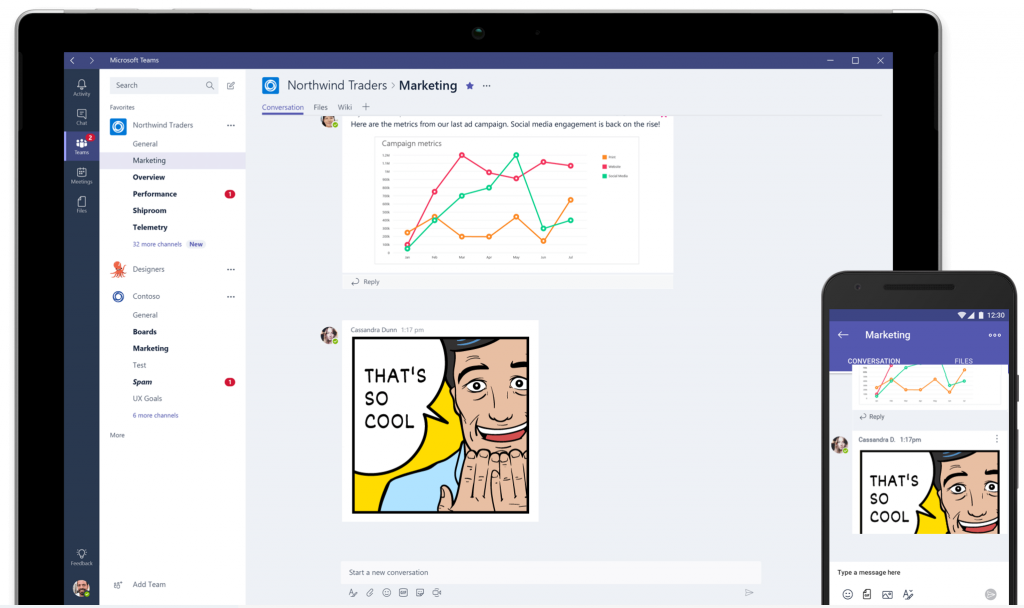
Not to be left out of the messaging apps revolution, Microsoft also has its own messaging app platform in the form of Microsoft Teams. This is basically a Microsoft “Slack” but with Microsoft on the back end. You can easily edit Work and Excel documents within the app and has Skype in built for video calls.
The catch? You have to sign up for Office 365 to use it. Unfortunately there is no free version of Microsoft Teams (yet!). But if some businesses already use Microsoft and Office 365, the transition to Microsoft Teams shouldn’t be too hard right?
Once again, that depends on if Ghanaian office workers want to use it. If workers are reluctant to use Slack, then Microsoft Teams might as well be in the same boat.
Old Faithful: Email Is Still King But For How Long?
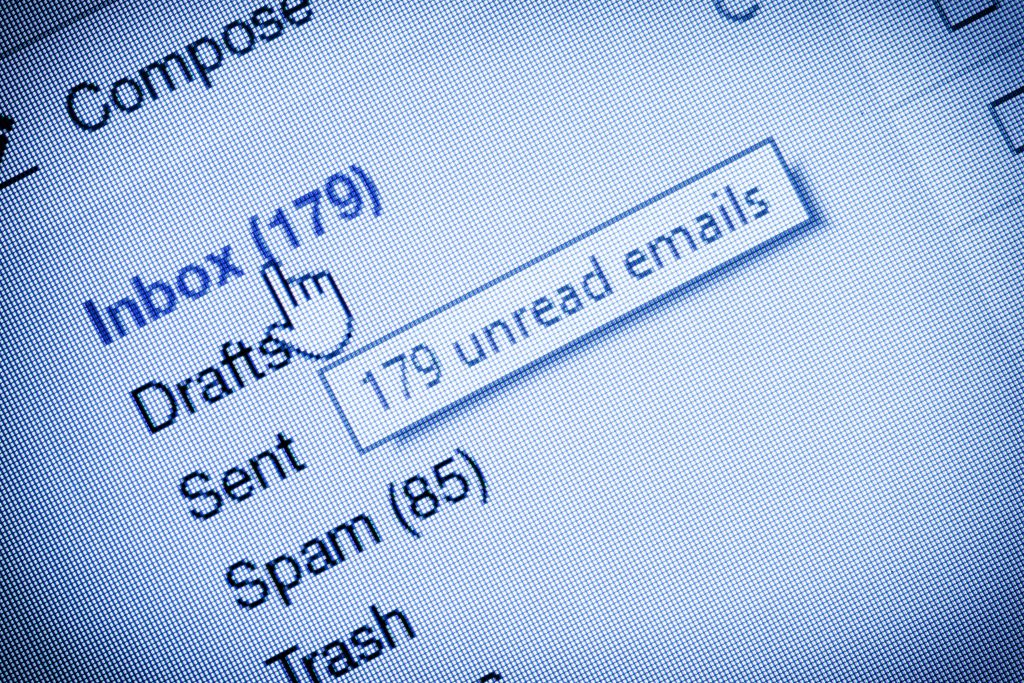
When I asked around about what communication tool people used at work, majority of people had the same response: Email
You basically can’t escape it. It’s ingrained. It’s the standard everyone goes by. On business cards, people have their emails with their Gmail, Yahoo or @[Insert Company Name] emails on there.
It’s the norm and trying to go beyond that would seem strange. In a way, email is kind of a message filter when you think about it. You give out your email for business and depending what messages you get, you can choose to respond or not. Before long, you get a follow up of “Did you get my email” messages.
But managing emails can be tough especially if you’ve signed up for different services and newsletters. I once had a total of 800 unread messages(!) in my inbox. Trying to reduce that number felt like a chore, and so I basically just clicked a check box and all my message notifications disappeared (If you sent me an email and I didn’t get back to you, I’m sorry!)
I know that with WhatsApp, if I have a length number of messages, I just skim and boom, the unread notification disappears. Same with Slack, I just skim through and I’m done.
Messaging apps can make communication more personal which is actually an advantage. I see a lot of business have an “info” email account but you hardly get a reply if you choose to send your email in that direction. If you sent your personal inquiry on WhatsApp, you are more likely to get a response. So in a way, it might make sense for a business to just focus more on the messaging apps for business and leave the email for other purposes.
But like I said, it might take some time. How long? Frankly I can’t tell. But with the way messaging apps are steady coming and users are adopting, email communication could be a thing of the past sooner than later.
For now, it looks like I’m going to keep trying to keep my unread email count as low as possible since most people opt for that.
By the way, my unread email count is currently at 147.



